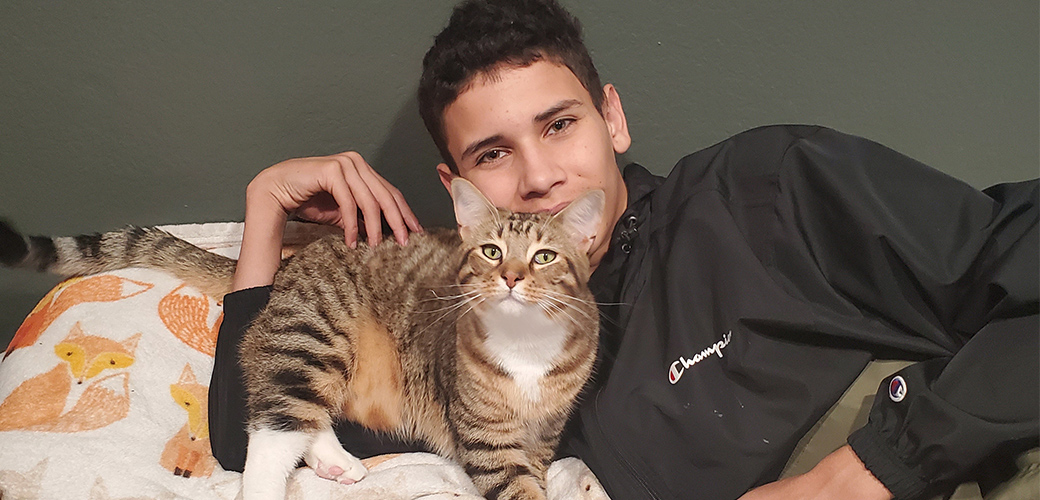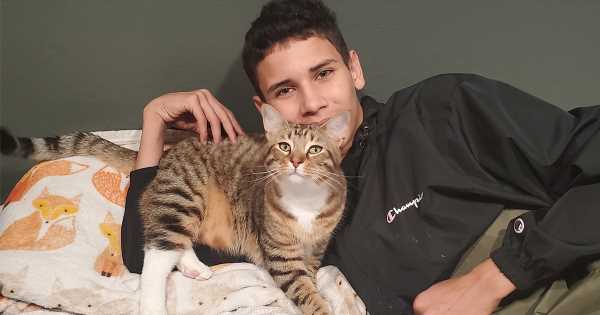

At the ASPCA, collaborating with foster volunteers who help us support animals along their journey is a vital part of the work we do, and we couldn’t be more thankful for our foster caregivers nationwide. Simply put, fostering helps save lives. But did you know there are a bunch of different types of foster caregivers whom we count on? Each provides special care and helps prepare their foster animal to find a loving home.
General Foster Caregivers
These foster caregivers provide care for animals who are ready for adoption but need to leave one of our facilities as they wait to find a home. Some animals find the shelter environment especially stressful and need a dedicated advocate to help them find an adopter instead. These could be cats or dogs, or even horses, who just need a place to stay while looking for the right match.
At some of our facilities, animals receive medical or behavioral treatment before transfer to a partner shelter for placement—which might be outside of a city environment if an animal prefers the slower life of a quiet neighborhood. Foster caregivers allow us to get these animals into homes as quickly as possible when they’re finished with treatment, making room for more animals in need. This type of foster caregiver simply provides love and care while our teams find partner placement and arrange transport.
Others, like our Undercover Cats, are often too overwhelmed by the shelter environment to let their personalities shine. A foster home provides these cats with the comfort they need to come out of their shells so potential adopters can learn more about their ideal home.
Fostering Animals with Behavior and Medical Needs
General foster caregivers may also provide care for animals with medical or behavioral needs. In some cases, an animal may be working through their medical needs and benefit from the comfort and constant care of a foster caregiver while they recover. They may need medications multiple times a day, so having a foster caregiver to administer them is crucial.
There are two types of behavior fosters. The first kind provides time and patience to help timid cats come out of their shells and become ready for adoption. The second kind of behavior foster will care for an animal in their home in order to ensure they are ready for placement. This often happens with fearful dogs at the Behavioral Rehabilitation Center (BRC) who are nearing the end of their treatment and need time in a novel environment to prepare for the transition into an adoptive home. During their time in the foster home, the foster caregiver will collect and share important observations about the dog with our placement teams to help them find the right adopter.
Kitten Fosters and Nursing Mothers
Kitten fosters care for kittens under eight weeks of age primarily during feline breeding season, also known as kitten season, when shelters are overwhelmed with kittens coming into their care. The younger kittens, called neonates, rely on their foster caregivers for round-the-clock care and bottle or syringe feeding. Older kittens may be in foster if they are still too young for adoption, are more susceptible to disease, or need more socialization. Their fosters can provide the socialization and care they need to be adopted.
Sometimes, we ask fosters to care for both the kittens and their nursing mothers until their kittens are old enough to be placed in foster homes—usually at eight weeks of age.
Puppy Fosters and Nursing Mothers
Like kitten fostering, puppy fostering includes puppies under eight weeks of age. These fosters care for puppies during an integral part of their socialization period, playing a critical role in teaching the puppies important skills such as how to eat on their own, where to go to the bathroom and to get used to being handled by people. We try to send puppies to foster in pairs or groups at this age to help with proper socialization. Often, nursing mothers come in tow with their puppies until their puppies are old enough to be placed in foster homes.
Ringworm Kitten Fosters
Ringworm kitten fosters care for, you guessed it, kittens who are recovering from the fungal infection commonly known as ringworm. We count on our ringworm fosters to help treat infected kittens with baths and oral medication—it’s cuter than it sounds! Once cured, these kittens can go on to find loving homes!
Community Fosters or Finder Fosters
These are foster volunteers who originally found lost or orphaned pets in need of extra care (whether in their backyard or neighborhood) and agree to provide the care needed until the animal is reunited with their owners or an adopter is found.
Large Dog Fosters
At all of our facilities, one of our greatest ongoing needs is for large dog fosters. Large dogs are typically considered to be those weighing 50 lb. or more. As long as you’re willing and able to take your large foster dog on walks to stretch their legs, provide their daily essential care and help them enjoy each day as they wait to find a loving home, you’re ready to foster a large dog!
Lion Tamer Fosters
Lion Tamer fosters are those who focus on undersocialized kittens who are still becoming comfortable with new people and novel situations. They work with their foster kittens to help them get used to these scenarios and ultimately, to live good lives as companion pets. Typically, these fosters have quiet homes, some cat experience, the time to help these kittens and, in some cases, a helper cat who can help the foster kitten feel more comfortable in this environment.
Caregivers for Animals Involved in Legal Cases
The ASPCA works closely with the NYPD and other law enforcement agencies around the country, caring for animals rescued from situations of cruelty or neglect. Unfortunately, many of these animals are considered evidence in the investigation and cannot be adopted until custody is determined by the court, which can take months. Initially, we provide the medical and behavioral treatment they need at our Canine Annex for Recovery and Enrichment (CARE) and Animal Recovery Center (ARC) for animals rescued in New York City, or our Cruelty Recovery Center in Columbus, Ohio for animals rescued through our national response efforts. Once they’re healed, many of these animals benefit from living in comfortable foster homes, receiving the love and care they were denied previously.
For any and all types of fosters, the ASPCA is always there for guidance and training. We also provide medical care, food, equipment and supplies.
Are you ready to become a foster caregiver?
Now that you’ve got all of the information you need about fostering, consider signing up to help animals in need today! You can apply to be an ASPCA foster caregiver in New York City, Los Angeles County, Asheville, North Carolina and Columbus, Ohio. Not in one of these areas? Find a shelter near you and remember that the best way to get involved is to ask the staff at the shelter what they need since every community is different!
Source: Read Full Article



